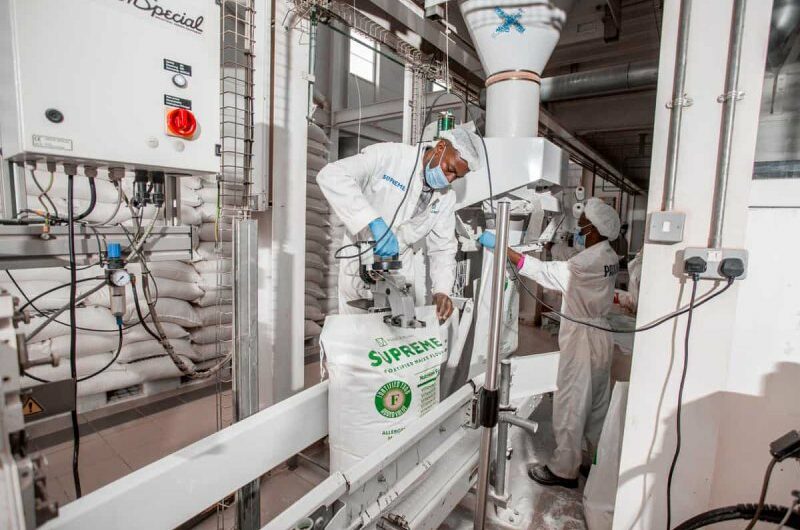The largest two-year decline in life expectancy since the 1920s occurred in the United States between 2019 and 2021, when it fell by 2.7 years. As a result, a lot of people are examining more carefully how their dietary decisions and other lifestyle choices can counteract this tendency and improve their overall health and lifespan.
What are flavonoids and how do they contribute to a longer lifespan? You might reduce your chance of acquiring chronic illnesses by include them in your diet.
Flavonoids: What are they?
Plants naturally contain minerals called flavonoids. When consumed, these phytonutrients shield and repair your body’s cells from harm. They can be discovered in a wide variety of fruits, vegetables, grains, legumes, nuts, and even plant-based drinks like wine, tea, and coffee. Scientists have discovered more than 5,000 different types of naturally occurring flavonoids.
Why are these organic substances so effective in boosting your well-being? To begin with, research indicates that flavonoids are
- Antioxidant
- Anti-inflammatory
- Antiviral
- Antimicrobial
- Antiallergic
- Immuno-supportive
“The purpose of antioxidants,” says registered dietitian Kerri Hawkins, “is to neutralize free radicals and damage in the body. A simple way to think about it is that they prevent or repair the damage and stress that happens naturally.” Chronic diseases can develop when repairs don’t happen, affecting your health and wellness.
Studies reveal that eating a diet rich in flavonoids can help prevent certain diseases like diabetes, cancer, heart disease, and neurological disorders. Flavonoids can help prolong a person’s life and improve general health by reducing the chance of developing several chronic illnesses.
Which diets contain flavonoids?
These powerful phytonutrients are present in a wide array of fruits and vegetables. “When you think about flavonoids,” Hawkins says, “think color. They’re responsible for the colors of fruits, vegetables and flowers.”
Look for the fruits and vegetables that have the brightest colors when you buy in the produce department. They have an abundance of flavonoids.
Foods high in flavonoids, or “superfoods,” include the following examples:
- Leafy greens (e.g., kale, spinach, romaine lettuce)
- Apples
- Berries (e.g., strawberries, blueberries, elderberries)
- Cherries
- Citrus fruits (e.g., grapefruits, lemons, limes)
- Pecans
- Artichokes
- Broccoli
- Onions
- Red cabbage
- Chickpeas
- Green tea
Red wine can also be a healthy source of phytonutrients, but too much wine can be harmful, according to registered dietitian Danica Cowan of the UCSF Osher Center for Integrative Health. “Yes, some wines are probably good sources of flavonoids, but there’s a lot of evidence to support the negative effects of alcohol,” she says. “Less is preferable.”
More: Your risk of dementia may be lowered by making some easy dietary choices.
Regarding flavonoids and life expectancy
A study conducted in 2023 revealed that eating a diet high in flavonoids may postpone aging in addition to lowering the chance of chronic illness development. Researchers assessed the amount of flavonoids in the meals of 3,193 participants. They then contrasted each person’s biological age—which was determined using biomarkers in their blood—with their chronological age.
The outcome? Compared to the group with lower flavonoid consumption, the one with higher flavonoid intake showed slower aging and a lower biological age. Data also showed that the high-flavonoid group exhibited delayed liver and heart aging as well as decreased overall body aging. Stated differently, the biological age of their bodies, livers, and hearts was younger than their chronological age.
This study was among the first to look at the potential connection between flavonoid intake and aging, albeit further research is required to validate and examine these findings. Future research on the effects on improving longevity and quality of life is warranted.
Where to start
The majority of people can maximize the potent effects of flavonoids with straightforward, easy-to-start measures. According to Cowan, “people become overwhelmed when they start hearing those tough-sounding words like phytonutrients.” However, what’s interesting? Unless you are a scientist, those are not very important. Eating more fruits and vegetables is the aim when attempting a better diet.
Topics #diet #flavonoids










